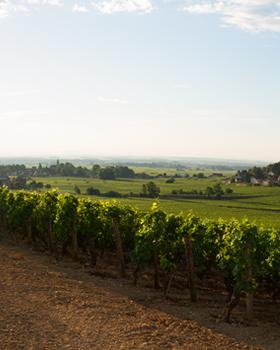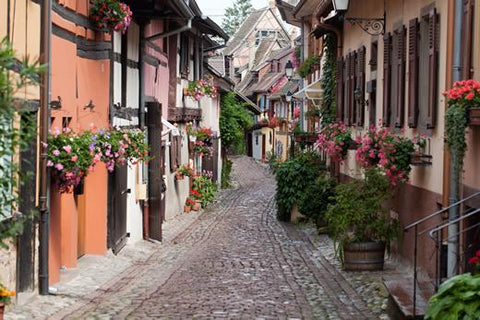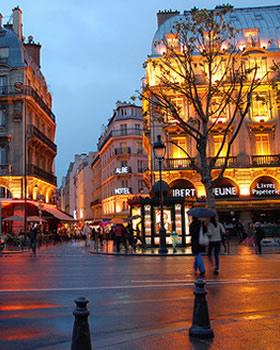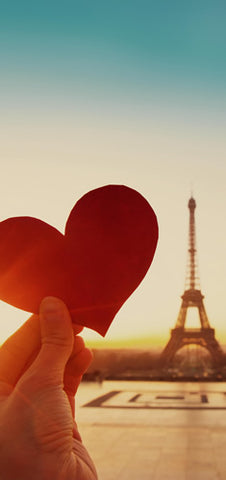Why not spend a week or two in France? Or more? There is a lot to see.
It's the biggest country in Europe, besides Russia and Ukraine of course. With mountains (the Alps), amazing coastlines (the Mediterranean and the Atlantic), rivers (the Seine and Saone among many) and rolling hills of picturesque castles, farmland and adorable villages, it is a jewel on earth.

And it has been kept that way by the people themselves, who cared about their crops, their way of life and their customs long before national preservation led the way in creating UNESCO sites and the like.
Did French history preserve art and wine or vice versa? You could argue both. Your average smart invader looked around and said yes, let's keep this and make it better. What is it about such basic things that make some cultures barely deliver something edible and others make you wonder how you lived your life without finally tasting something as it was meant to be? The French call it savoir faire. Translation is "know how" but it's something a little more subtle along the lines of "knowing how to live."

Keep in mind plenty of countries were growing grapes for basically religious reasons and some trade. It was the whole point of cultivation. The French really innovated the idea of vintages, terroir and classification. About 150 years ago or so they noticed their wines were significantly better than, as the English say, average plonk. Well let's make the price reflect that! And the stamp of a few French kings did not hurt. The Duke of Burgundy acknowledged the French king in the 14th century, and so his land was protected and his product improved by not being pillaged and occupied. Being close to Swiss trade routes helped too. Very, very short version of local history.
And then in Champagne the rather odd, once reviled bubbly beverage that seemed to be ruined wine became the celebratory quaff of French coronations. Nice re-branding!
As for the incomparable Paris, the 2000 year old port of Marseille, and Lyon which was an important bridge via rivers to other parts of Europe, they showed what a city could be. Quaint and epic, carefully built and dedicated to the idea of the public square and life as it should be lived, with a daily routine of some bread, a walk, your livelihood and a roof over your head which was better than the village could ever offer if you weren't a duke.
So visit the Alps, Paris, a beach, take a river cruise and taste some wine or Champagne.

Step into an 800 year old cathedral and marvel at the workmanship done with hand tools and ingenuity and talent.
Walk very old cobblestones and duck into a 500 year old doorway in Alsace.
Retrace the steps of adorable donkeys in a Provencal castle.
Join locals at a Parisian coffee bar and taste a steaming espresso along with your expertly twirled pastry bag.
Soak up the savoir faire.

